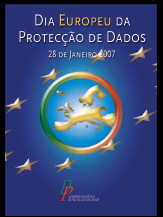 Article published at Techtree
Article published at Techtree
Microsoft,
Google,
Yahoo!, and
Vodafone have signed an agreement with online activists, human rights groups, and press freedom groups to draw up an Internet code of conduct to protect free speech and privacy of Web users.
These four companies will together develop a code of conduct with a coalition of nongovernmental organizations (NGOs) to promote freedom of expression and privacy rights.
Besides, they will establish a set of rules that will govern how they deal with censorship and other restrictions on human rights. In a joint statement, the companies said that they aim to come up with a code of conduct by the end of this year that would counter such trends as the increased jailing of Internet journalists, monitoring of legitimate online activity, and censorship.
They would also develop a framework that would hold signatories accountable for their actions in the areas of freedom of expression and privacy rights.
According to a Google spokesman, Google has helped initiate this process as part of their commitment to protecting human rights and privacy of their users around the world. And, they look forward to working with all the parties in an effort to arrive at global principles that can help them protect Internet users in countries that seek to curtail free expression






 Article published at Techtree
Article published at Techtree










